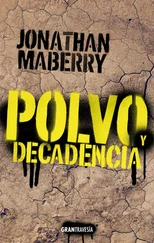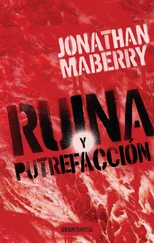“Why would Stalin’s security police be guarding a religious shrine?”
“Good question. I’ll send a preliminary report to headquarters. I’ll have to use the long-range radio in the communications truck since our tanks’ radios won’t reach.”
Krugmann returned shortly, irritated. “Radio doesn’t work. See if your men can fix it. And get one of the trucks ready. We don’t have room in our tanks to carry anything.”
“Koch, Schultz, take care of it,” said Langer. The pair hurried off.
Krugmann resumed reading. “On April 15, 1801 a meteorite landed here. The czarist authorities investigated, but the findings were kept secret and have never been released. The Holy Synod was so alarmed it ordered everything at the site buried and had this shrine built over it.”
“Why would SKZ be interested in a meteorite?”
“Because when Doctor Ziegler analyzed old news reports he concluded it wasn’t a meteor. He calculated it was traveling too slow and the impact crater was too small. Eyewitnesses claimed it zigzagged across the sky before it hit. Ziegler thought what actually crashed was some kind of craft. But no one’s ever excavated the site to see what’s buried here. The Orthodox Church forbade any digging, a prohibition that’s continued under the Bolsheviks.”
Langer frowned. “There weren’t any aircraft in 1801.”
“No there weren’t.”
“God, what a crazy story.”
“Exactly what our Air Ministry’s technical office and the Army Ordnance research office said. They consider it nonsense from superstitious peasants. After all, when a meteorite blew up over Siberia about thirty years ago the locals thought the destruction was caused by some pagan god. Since the military wasn’t interested Himmler ordered SKZ to get involved. If what’s buried here really was from another planet there might be useful parts left. Recovering advanced technology would be an incredible coup if it could be reverse-engineered into something of military use. And the Reichsführer is always looking for ways to increase his power and influence.”
Koch and Schultz returned. “Herr Lieutenant,” said Koch, “none of the radios in the truck can be repaired. The wires and tubes are burned out and we have no spares.”
“None of the trucks will start either,” said Schultz. “Nor will any of the other SS vehicles. All their electrical systems are shorted-out.”
“I found the same thing when I tried to restart the generator,” added Langer.
Krugmann let out an exasperated sigh. “Then siphon off as much gas as you can for the tanks. No sense leaving it for Ivan.” Krugmann turned back to Langer, “We can assume headquarters would have ordered us to take over Operation Cosmic.”
“What happened to their vehicles?”
“I don’t know.” He pondered this for a few moments. “Never heard of poison gas causing an electrical overload. It can’t have been that after all.” He pulled off his mask. “Go ahead and take them off,” he told the others.
“Why weren’t our tanks affected? Or us?”
“It must have a limited radius.”
“And if we disturb it we’re liable to trigger it again.”
“We’ll have risk it. We’re digging it up, whatever it is.”
“Yes, Herr Lieutenant.” He tried to keep misgivings out of his voice. Orders were orders.
At Krugmann’s direction Langer’s tank was moved back to the hill. Another crew stood watch on the crest, scanning the moonlit steppe for signs of the enemy. The ominous clatter of diesel engines had been heard way off in the distance.
Inside the shrine the flagstone was pried up and ropes were slipped over it. These were hooked to the hoist, moved into position to raise it. The heavy slab rose in slow jerks as the platoon’s strongest men, stripped to the waist, pulled in unison, the pulleys creaking. The atmosphere was tense.
But nothing happened. Under the flagstone was a pit. The slab was swung to one side and lowered onto the floor. Everyone crowded around the edge and shined flashlights down.
A couple meters deep, it was lined with stone like a burial vault. At the bottom were two hollow hemispheres about a meter in diameter, made of a shiny, aluminum-like metal. The outer surfaces were studded with crystalline protuberances resembling the contact detonators of a naval mine. Krugmann jumped down, put on his gloves, and picked one up.
“Well, that’s definitely not a meteorite,” said Hoppe.
“Looks like the halves of a big, hollow ball,” said Koch.
Krugmann set down the hemisphere and shone his flashlight around. He spotted fragments and picked one up. It was a jagged, curved shard of an unknown substance, pale blue and smooth as glass. Clambering back out, he continued his examination, turning the shard over in his gloved hands. He tested its strength. It snapped easily in two.
“Any ideas, Herr Lieutenant?” asked Langer.
Krugmann rubbed his chin. “They probably lifted the slab just enough to see if anything was under there, poked around, and triggered whatever killed them; some anti-tampering device. Then the slab fell back in place.”
“What was in the sphere?”
“No idea. All I found were these pieces.” He turned to the others. “Four of you get down there and start digging. See if anything is buried.”
A ladder was lowered and four men descended with spades and buckets. Handling them carefully, the hemispheres and blue fragments were brought up and laid out on the floor. The men found a hole in one corner, just big enough to admit an adult. The smallest of the men, a lean, wiry fellow, crawled in to take look.
“What’s in there, Hans?” asked a colleague.
“A tunnel of some sort. Has a funny smell.”
Up above, Krugmann stared at the inscription on the flagstone. “I studied Russian at university before the war, so I should be able to translate this,” he said. Frowning, he brought out the SS documents again, looking for a particular reference. When he found it he compared it with the inscription. His scowl deepened.
A slight tremor shuddered through the shrine. Everyone stopped and looked around.
“Earthquake?” an anxious crewman asked.
A second, stronger tremor shook them. The men in the pit scrambled out.
Krugmann’s eyes widened with sudden realization. “Get out of here! Now!”
The crews rushed outside and dashed for their vehicles. Even as they ran the ground heaved beneath their feet again and this time it did not stop. Two men stumbled and fell. Krugmann dragged them to their feet and exhorted them on.
The platoon jumped into the Mark IIIs, relieved the engines were still warm so they could use the electric self-starters instead of standing outside and hand-cranking them. The noise of them firing up was drowned out by a deep rumbling.
“Herr Lieutenant, what’s happening?” asked Langer over the radio. He strained to hear the officer’s reply over the din.
“Fools!” said Krugmann. “Ziegler should have read the inscription. The translation was wrong. It’s a warning from the Holy Synod.”
“What was in the sphere?”
“An egg! Opening the sphere let it hatch!”
Langer twisted around in the cupola to look. Even as he watched a great fissure opened beneath the crumbling shrine and swallowed it up, the SS vehicles tumbling into the yawning abyss after it. The crashes were drowned out by the tremendous roar. A cloud of dust was thrown up, and through it huge slimy tentacles thrust from smoking cracks in the earth. Leprous and gray in the moonlight, ever more limbs sprouted as they grew at an impossible, unearthly rate. A great, reeking stench wafted out.
Then a huge mechanical beast rumbled into view. Langer’s blood froze. It was a Russian heavy tank.
Читать дальше
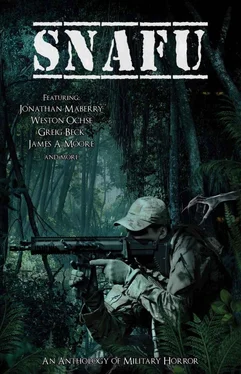
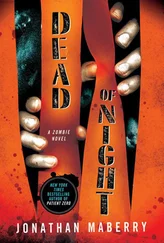
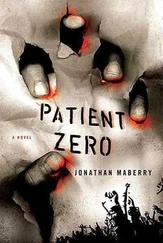


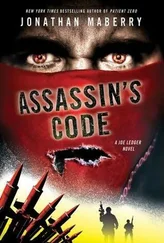

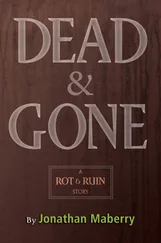


![Джозеф Нассис - SNAFU - Heroes [An Anthology of Military Horror]](/books/412548/dzhozef-nassis-snafu-heroes-an-anthology-of-milit-thumb.webp)
